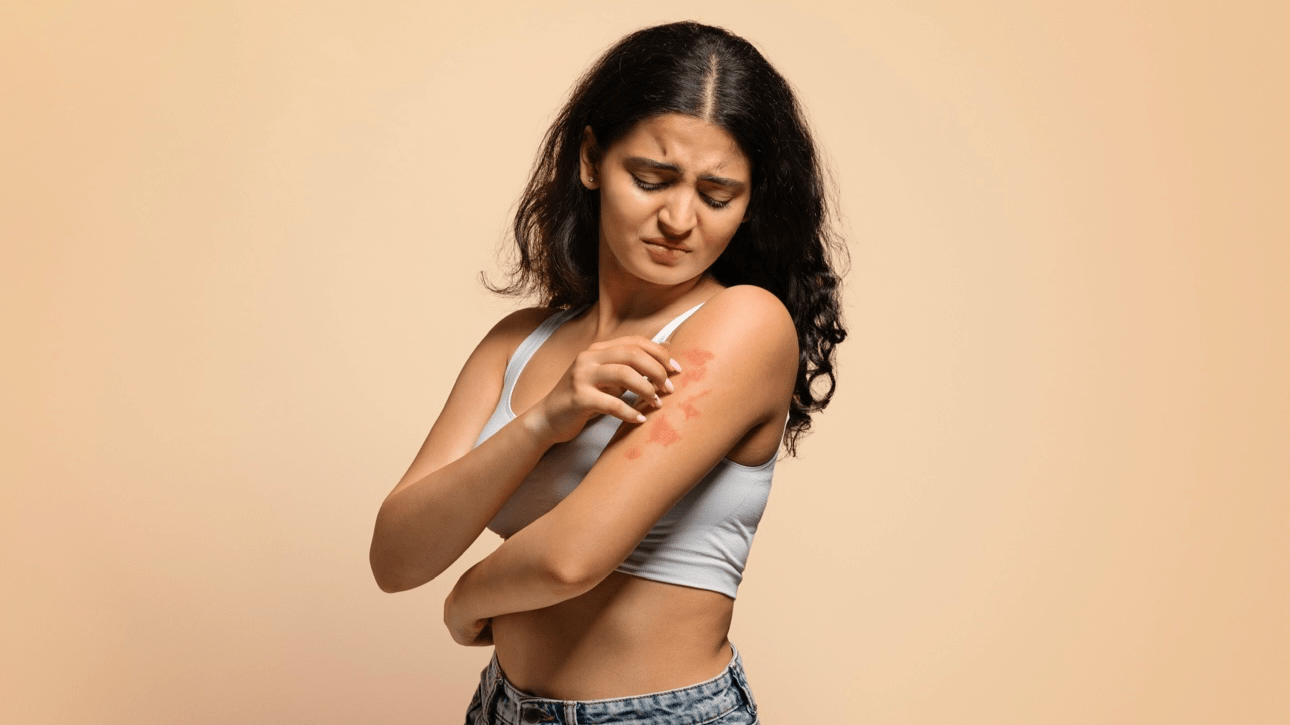Menopause and Itchy Skin: Understanding the Connection and Relief Options
Menopause is a natural stage in a woman’s life when her menstrual periods cease, typically occurring in her late 40s or early 50s. Along with the hormonal changes that occur during menopause, many women experience a range of physical and emotional symptoms. One common symptom that can accompany menopause is itchy skin. In this article, we will explore the connection between menopause and itchy skin, the potential causes, and effective relief options.
Understanding Menopause and Hormonal Changes
During menopause, a woman’s body undergoes significant hormonal changes. The ovaries produce less estrogen and progesterone, leading to various physical and emotional symptoms. These hormonal fluctuations can affect the skin, leading to dryness, sensitivity, and itching.
Causes of Itchy Skin during Menopause
Several factors contribute to itchy skin during menopause. These include:
1. Estrogen Deficiency: Estrogen plays a vital role in maintaining healthy skin. As estrogen levels decline during menopause, the skin may become drier and more prone to itching.
2. Declining Collagen Levels: Collagen is a protein that provides structure and elasticity to the skin. With age and hormonal changes, collagen levels naturally decrease, leading to thinner and less resilient skin, which can contribute to itching.
3. Reduced Sebum Production: Sebum is the skin’s natural oil that helps to moisturize and protect it. During menopause, sebum production decreases, leading to dryness and itchiness.
4. Changes in Blood Flow: Hormonal changes during menopause can affect blood circulation, potentially leading to reduced blood flow to the skin. This can contribute to dryness and itchiness.
5. Skin Conditions: Menopause can exacerbate pre-existing skin conditions, such as eczema or psoriasis, leading to increased itching and discomfort.
Relief Options for Itchy Skin during Menopause
While itchy skin during menopause can be bothersome, there are several relief options that can help alleviate the discomfort:
1. Moisturize Regularly: Keeping the skin well-hydrated is essential for relieving dryness and itchiness. Use a moisturizer that is specifically formulated for dry or sensitive skin, and apply it regularly, especially after bathing or showering.
2. Avoid Hot Showers or Baths: Hot water can further dry out the skin and worsen itching. Opt for lukewarm water instead, and limit your bathing time to avoid stripping the skin of its natural oils.
3. Choose Gentle, Fragrance-Free Products: Harsh soaps, detergents, and skincare products can irritate the skin and exacerbate itching. Opt for gentle, fragrance-free options that are specifically formulated for sensitive skin.
4. Wear Breathable Fabrics: Synthetic fabrics can trap heat and moisture, leading to increased itchiness. Choose breathable, natural fabrics such as cotton or linen to allow the skin to breathe.
5. Use a Humidifier: Dry indoor air can worsen skin dryness and itching. Use a humidifier to add moisture to the air and improve overall skin hydration.
6. Avoid Triggers: Identify and avoid potential triggers that worsen itching, such as certain fabrics, perfumes, or environmental factors like extreme heat or cold.
7. Practice Stress Management: Stress can exacerbate menopausal symptoms, including itchy skin. Engage in stress-reducing activities such as exercise, meditation, or yoga to help manage stress levels and promote overall well-being.
8. Seek Medical Advice: If your itchy skin is severe, persistent, or accompanied by other concerning symptoms, it is advisable to seek medical advice. A healthcare professional can evaluate your symptoms, provide a proper diagnosis, and recommend appropriate treatment options.
Medical Treatment Options
In some cases, over-the-counter or prescription medications may be necessary to alleviate severe or persistent itching. These may include:
1. Topical Steroids: Topical corticosteroids can help reduce inflammation and relieve itching. They are available in various strengths and formulations, and should be used under the guidance of a healthcare professional.
2. Antihistamines: Oral antihistamines can help reduce itching by blocking histamine receptors in the body. However, they can cause drowsiness, so it is important to choose non-drowsy formulations if daytime use is required.
3. Hormone Replacement Therapy (HRT): Hormone replacement therapy, which involves taking estrogen and progesterone supplements, can help relieve menopausal symptoms, including itchy skin. However, HRT is not suitable for everyone, and its use should be discussed with a healthcare professional.
Itchy skin is a common symptom experienced by many women during menopause. The hormonal changes and age-related factors that occur during this stage can contribute to dryness, sensitivity, and itching. By understanding the causes and implementing effective relief options, women can alleviate the discomfort associated with itchy skin during menopause. Remember to moisturize regularly, choose gentle skincare products, avoid triggers, and seek medical advice if the itching is severe or persistent. With proper care and attention, women can navigate through menopause with greater comfort and well-being.









